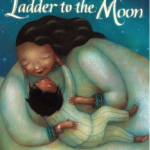 I mentioned when I wrote about the book Bridging the Gap: Working Within the Dynamics of Pagan Groups and Society that I planned to do a series of posts based on quotes from the book. As I also mentioned, one of the college classes I teach is in group dynamics. The following is some basic information that I share during the first night of my in-seat class and in a video during the first week of my online class. It is pieced together from my various textbooks and is thus not specifically original to me, but is a compilation of important groupwork info.
I mentioned when I wrote about the book Bridging the Gap: Working Within the Dynamics of Pagan Groups and Society that I planned to do a series of posts based on quotes from the book. As I also mentioned, one of the college classes I teach is in group dynamics. The following is some basic information that I share during the first night of my in-seat class and in a video during the first week of my online class. It is pieced together from my various textbooks and is thus not specifically original to me, but is a compilation of important groupwork info.
WHY GROUPS?
Fish swimming in unison are called a school. Baboons foraging together are called a troupe. A threesome of crows cawing through a meadow is called a murder. Whales together are called a gam. And, a collection of human beings is called a group.
The tendency to join with others in groups is perhaps the single most important characteristic of humans and the processes that unfold within these groups leave an indelible imprint on their members and on society.
Groups matter! Much of the practical work in the world is done in groups. Groups hold key to solving social problems like racism, sexism, and international conflict. Any attempt to change society will succeed only if the groups within society change! Groups are also keys to understanding people. Human behavior is very often group behavior and humans cannot be studied in isolation, away from their families, friendship cliques, work groups, and so on. People may be becoming more isolated/alienated, but the single man or woman who has no connection to other men or women is an extraordinarily rare human being!

Members of our species are capable of surviving alone, but few choose to, for virtually all human activities—working, leaning, worshipping, relaxing, playing, and even sleeping, occur in groups. To understand people, we must understand their groups.
Groups are important for personal reasons. You will spend your entire life being in groups, getting out of groups, leading groups, and changing groups. Through your membership in groups, you define your values and beliefs and take on or refine your social identity. Groups influence you in consequential ways, so ignore their influence at your own risk!
Three definitions:
Group—two or more individuals who are connected by and within social relationships.
Group dynamics—the actions, processes, and changes that occur within and between groups over time; also, the scientific study of those processes. Group behavior.
Group process—all elements basic to the unfolding of a group from the time it begins to its termination. Includes dynamics like norms, cohesion, etc. In short, describes how things are happening within a group.
People gravitate towards smaller groups. Three to seven members is good for productivity and beyond fourteen begins to get too difficult to manage or to maintain individual within-group relationships.
The tendency to join with others in groups is perhaps the single most important characteristic of humans, and the processes that unfold within these groups leave an indelible imprint on their members and on society. Group dynamics are the influential processes that take place in groups as well as the discipline devoted to the scientific analysis of those dynamics.
Okay, finally bringing it back to Bridging the Gap, Blanton touches on this question of why groupwork matters as well:
“That‘s why I am a solitary.”
How many times have you heard that statement? It has become an overwhelming response of Wiccans and Pagans reacting to what I affectionately call ―the black hole of group work. If you have been in a group or coven of any kind, then you understand exactly to what this is referring. The black hole is the downward drain of negativity that inevitably finds its way into group work. The shadow side of groups and covens usually come disguised as anger, jealousy, power struggles and backbiting. In reality this mask is just a front for individual fears and insecurities.
Navigating through group work is one of the hardest yet beneficial experiences from which to learn. It can be easy to forget that living as spiritual beings does not separate us from dealing with negativity on an everyday basis. In addition, spirituality is a tool to assist one with living a better quality of life, building connection and increasing acceptance of being who one is. Spirituality helps feed the part that needs to find a purpose, and this alone initiates growth.
We can imagine how having a group of people who are learning, growing, challenging reality and learning to live more enhanced lives can become a breeding ground for misunderstandings and hurt feelings. This process is a part of the design of growing in coven and group work. Beyond this, it is imperative to understand and accept that group and coven work sometimes come with irritating, irrational, frustrating, and uncomfortable yet sometimes necessary drama.
If the drama, the sucking black hole of negativity, is used as a tool then how does one make sure to not fall victim in what can become the infamous Witch wars, hurt feelings and disagreements of which we are all aware in our community? (P. 11)
These rough patches can be points of significant growth. Blanton explains: “It is easy to practice honesty when there is nothing wrong and things feel comfortable. It is not so easy to be honest when things are uncomfortable or not as we want them to be. These are the situations in which we are stretched and challenged, thus pushing us to a place of growth” (p. 13). And goes on to explain that one of issues is our very human and personal tendency to take things personally:
One of the biggest culprits in the creation of Witch wars is the process of taking things personally. A combination of structure, personality and personal growth can create dissension that might be perfectly normal in the confines of our culture. When the added element of perceived personal attack or disrespect is added, then the shift from ―normal growing pains become the foundation of a potentially explosive misunderstanding. P. 15
Why does this matter to Pagan Families? Because, we and our children, cannot not participate in groups. Whether we are in a specifically pagan group, or hanging out at a playgroup, or having a birthday party, we are impacted by and are impacting the group dynamics of that environment. As I say in my classes when I talk about why groups matter, “ignore their influence at your own peril!” In my next post, we will look briefly at the role of personal responsibility in the functioning of a healthy group.












